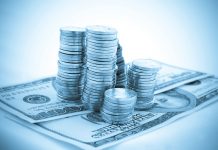Interest rates up despite sluggish new car demand
Thailand’s sixth largest lender by total assets, Thanachart Bank, raised its interest rates for hire-purchase car loans in September by 10 to 15 basis points, taking the level to between 2.65 and 2.75 percent.
This is in line with the rest of the lending rates across the industry and was made in response to higher financial costs and the rising number of non-performing loans (NPLs).
Thanachart Bank is the largest lender in the auto industry, with a portfolio of around 435 billion baht. It has been one of the hardest hit in terms of non-performing loans within the vehicle sector, much of it largely because of the ousted governments’ first car buyer policy, which continues to have repercussions across the local motor vehicle industry.
The bank has noted that new car sales for 2014 should finish at around 820,000 to 850,000 units and it is forecasting a much-improved 2015 with numbers expected to rise to 930,000 units.
A senior vice-president with Thanachart Bank has been quoted as saying that demand for new cars has remained weak, even with many leasing companies offering promotional campaigns at zero interest rates for a period or offering no down-payment deals.
The auto leasing arm of Kasikornbank, Kasikorn Leasing, has an interest rate level of 2.65 percent, having also pushed the rate up by 15 basis points. As with others in the same marketplace, Kasikorn Leasing said the rate hike was needed to cover rising internal overseeing costs and the increased number of NPLs.
Tisco Bank, another which operates strongly in the car market, has also raised its loan rates by 10 to 15 basis points for new car loans.
Thanachart Bank said the rate rise was needed because of the higher than anticipated NPLs and also the increased costs incurred in both servicing these and introducing stricter debt collection procedures. Equally, interest rates are expected to rise across the board over the next 12 months as economic outlooks improve.
Although the Bank of Thailand has kept its policy rate unchanged at two percent, there are those within the financial community who believe it will be forced to lift that rate sometime within the next year to mirror what has happened with the US Federal Reserve which is showing interest rates trending higher.
Of course, the central bank’s policy rate is a short-term rate, while the rates within the automotive hire-purchase industry are long-term, usually stretching over four years and therefore most often slightly higher than the short-term rate.








